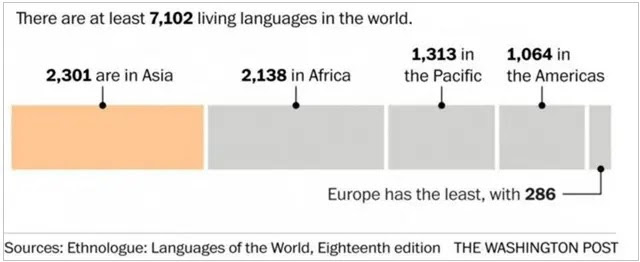WHY WE NEED A COMMON “BUSINESS LANGUAGE” TO FIGHT POVERTY?

BY DR NIMROD
STUNNING DIFFERENCE
In 1990 I was 25 years old and left Israel for the first time. In the next 12 months, I traveled through 23 countries.
First, I was interested in seeing high mountains, wide rivers, and other extremes of nature. Then I was intrigued by human history and achievements and spent much time in museums, cathedrals, synagogues, and mosques.
Finally, I saw the beauty of the people around me, in their differences, different cultures, languages, and rainbow of character “colors.” I became fascinated by it.
Since then, as a business person, I have traveled to many more countries. I am lucky to continue doing so nowadays, mainly in Africa and Asia.
The diversity of languages and cultures is immense, often varying even between neighboring villages.
Many trips, and yet, my fascination with human culture and differences has not diminished.
However, variance comes with a price tag, which can be very high if improperly managed.

THE COMMON CODE
In my view, the difference between us is what makes us unique as humans. We should keep, appreciate, cherish and celebrate our differences daily.
But, we should also remember the case of the Tower of Babel.
To achieve a common task, we must communicate and understand each other well.
Misunderstanding each other’s intentions can easily predict a future failure of a project. Remember, the Tower of Babel!?
However, there is no need to prefer or choose one language and culture over the other. Quite the contrary, keep your language and culture, and in parallel be “open” to accept other languages and cultures.

What is today’s “Tower of Babel”?
Differences in languages and cultures disrupt the construction of the Tower of Babel. The same differences can damage today’s BUSINESS and global trading, particularly those related to export.
Business, like music and mathematics, has its particular “language” and “culture” (rules and conduct). To play music in a group, you must follow the rules.
The same is with business; if you don’t follow the rules, your performance interferes, and others may refrain from playing with you.
From personal experience, I know that misunderstanding the business language and culture (even the local one) is the most significant barrier to business success, even if it doesn’t seem so on the surface.
Those barriers are so high that most business people prefer to avoid them by not doing business with those who don’t “speak” their business language and culture. Remember, the Tower of Babel has never been completed?!

ASIA AND AFRICA
Whether you like it or hate it, in the 21st century, there is one Business language that overrides the others; it is the Western-style Business Language and its Culture.
Business languages are always related to Cultures, so knowing a particular Business language means that you also understand the Culture elements that formed it.
In contrast to the low number of languages and cultures prevailing in the West, Asia (particularly India) and Africa are blessed with over 4,000 (!) living languages.
For an outsider, Asia and Africa may seem like a living Tower of Babel. Without any question, it reflects the difficulty of doing business with them or among them.
What can we do to face those challenges better?
When we examine countries that managed to escape poverty, such as Japan, China, Korea, Abu Dhabi, Eastern European (post-communism) countries, and Singapore, we see one thing in common.
Those countries have all gone through a transition phase, where they have partially or fully adopted the Western business “language” and culture and localized it.
This, by localizing the Western business style into their business language and culture.
I still remember the old couple I have met when traveling in Japan. They explained to me how, after W.W. II, the emperor ordered the Japanese people to emulate the Americans. The emperor explained that if the Americans bit us, we better learn from them.
Twenty-five years later, Japan became an economic super-power.
There is no reason to be afraid of the Western Business Language and Culture. Like in music, you take what you want and synthesize it into your own.
If you borrow global musical elements into our local music, why don’t we do it with business too?
A prosperous nation is a proud nation. Improve your international export business to bring prosperity to your country.
ISRAEL, AS AN EXAMPLE
In elementary school, still in the Kibbutz, I study with 11 other boys and girls. Few children, yet our parents came from Africa, Asia, Europe, and LATAM.
None of our parents came from the USA, but we had an American teacher. No representatives from Australia and the arctic. Other than this, we were covered.
Interestingly, most of our parents were orphaned, sole survivors of their families of the Holocaust. Often, our parents married a spouse born in a country other than theirs.
That horrible history set the stage for a significant relative advantage a few decades later, as global trading became common.
Israelis are born into a multi-culture society and are exposed to various business cultures, including the International/Western Business Language and Culture.
This is becoming very handy and helpful for companies that wish to go global. The Israeli economy and culture benefit from that as well.
If Israel benefited so much from being multi-cultural, imagine the plentiful that emerging economies can gain by incorporating the International Business Language and Culture into their current business environment.
BE BILINGUAL OR MULTILINGUAL
The inability to fluently “speak” the Western Business Language and act according to its cultural rules dooms any business endeavor to failure.
All business people should master at least two business languages and cultures; the one in their home market and their export market/s.
Anyone who speaks more than one language knows the competitive advantage of mastering several languages and related cultures.
The same rule and benefits are reserved for those who master several business “languages.”
ADJUST YOUR BUSINESS CULTURE FOR EXPORT
First, we must accept that to improve farmers’ livelihood; we must sell their high-quality produce for a better price. Often, EXPORT international premium markets offer the highest prices!
To export, we need excellent communication skills with our business partners. This is when the Business Language and culture become essential and handy.
How do you learn/teach the Western Business Language and Culture?
Like any language and culture, the best way of learning is practicing.
The Dream Valley National Export Program, by its nature, is export-oriented. It means that any participant in the program, starting from the farmer to the supermarket chain, would have to communicate with each other.
Naturally, value chain partners would all need to “speak” the same Business Language. Dream Valley’s Business Language would be the Western one, as it is export-oriented to premium Western markets. However, it may vary and be localized according to the target market.
Those who are not yet fluent in the Western Business Language will have the opportunity to practice. This is one more advantage of being part of the Dream Valley program.
Speaking better the business language means better livelihood to farmers and a more significant contribution to the country’s development and economic prosperity.
| TAKEAWAYS» A COMMON BUSINESS language and culture are the door openers to business creation.» THE WESTERN Business Language and Culture are the common denominators for export and global business activity.» WHEN YOU EXPORT, the entire value chain should “speak’ the same business language. |
| If you enjoyed the article please share it with friends & colleagues. |

